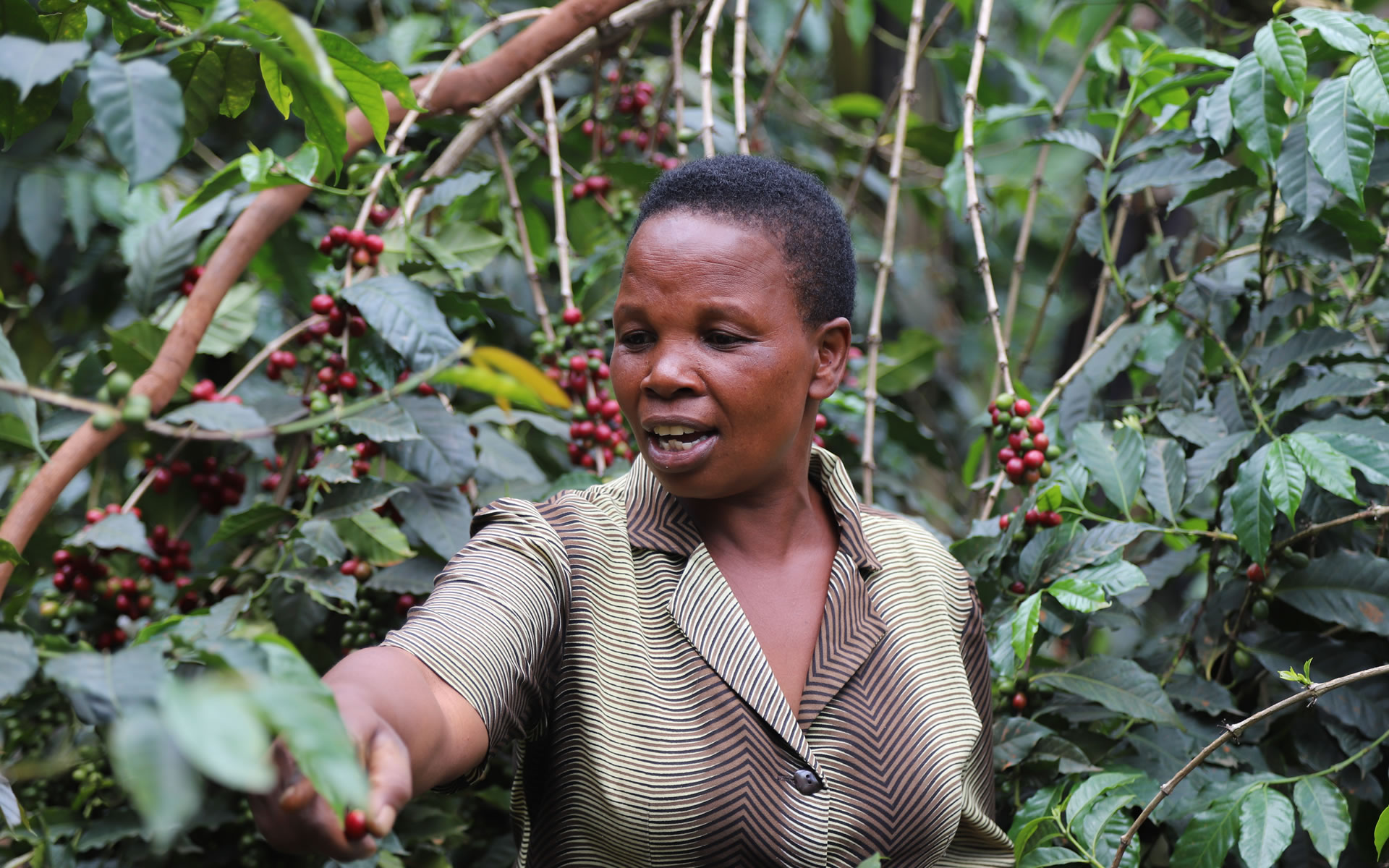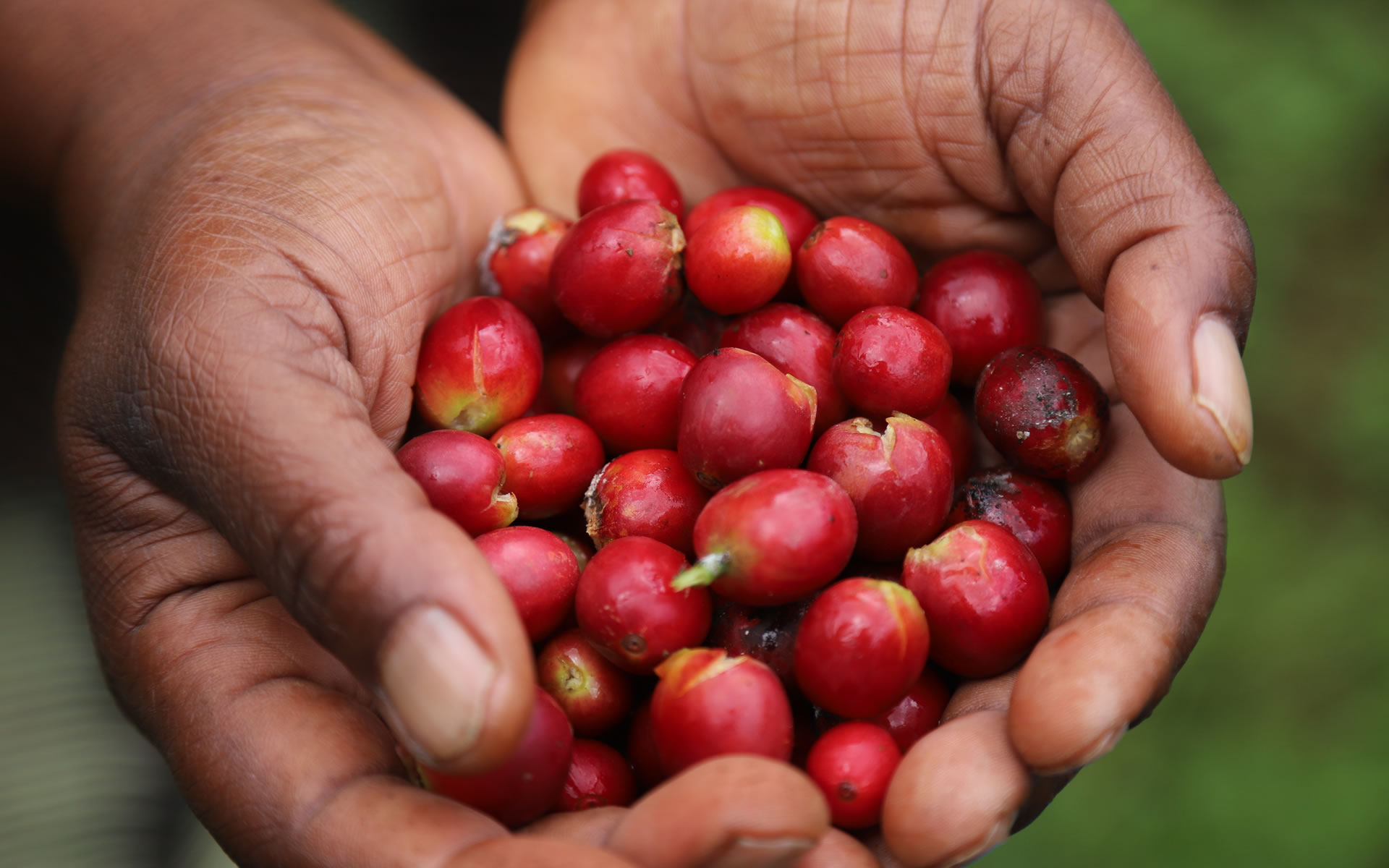Mrs. Kishero speaks of the benefits of ASARECA training

BY GENEVIEVE APIO AND BEN MOSES ILAKUT
Born on the slopes of Mountain Elgon in Uganda, Mrs. Olivia Kishero started growing coffee as a child in 1990. In July 2022, ASARECA, with financing from the CAADP-XP4
Project invited Mrs. Kishero for a benchmarking exercise in Arusha, Tanzania.
Introduction to CSA best practices
During the exercise, which brought together Climate Smart Agriculture (CSA) researchers, farmers, and the private sector from Eastern and Central Africa, Olivia alongside her peers, participated in a workshop on CSA-based farming where they were introduced to some key CSA farming elements.
Exposure through field excursions
In order to demonstrate some of the key aspects learnt in the workshop, participants were taken for a field excursion where they interacted with Tanzanian farmers who practice CSA innovations. Some of the critical areas that they interacted in included: Suitable post-harvest handling and storage; use of trenches and water basins; good plant spacing; and best nursery management. Through this training, Mrs. Kishero was able to leverage a mix of her own experience, and theory from the workshop, and acquired knowledge to improve her work back at home.
Olivia conducts training back at home
She subsequently organized training for farmer leaders in her district in conjunction with Uganda Coffee Development Authority (UCDA). Today, she is seen as a model farmer. UCDA selected her to supply seedlings to other farmers, which has tremendously boosted her revenue. “UCDA is now buying coffee seedlings from me at quite a good price,” she says. “One time they bought 10 tonnes of seedlings in one season and that was a huge boost.” To date, Mrs. Kishero earns up to UGX 50 million (about USD 13,700) a year. “
She now speaks with confidence
I can say I am able to meet all my key needs, especially educating my children,” she asserts. Mrs. Kishero is one of the farmers whom ASARECA has reached out to through capacity strengthening initiatives under the CAADP-XP4 Programme financed by the European Union through IFAD.

